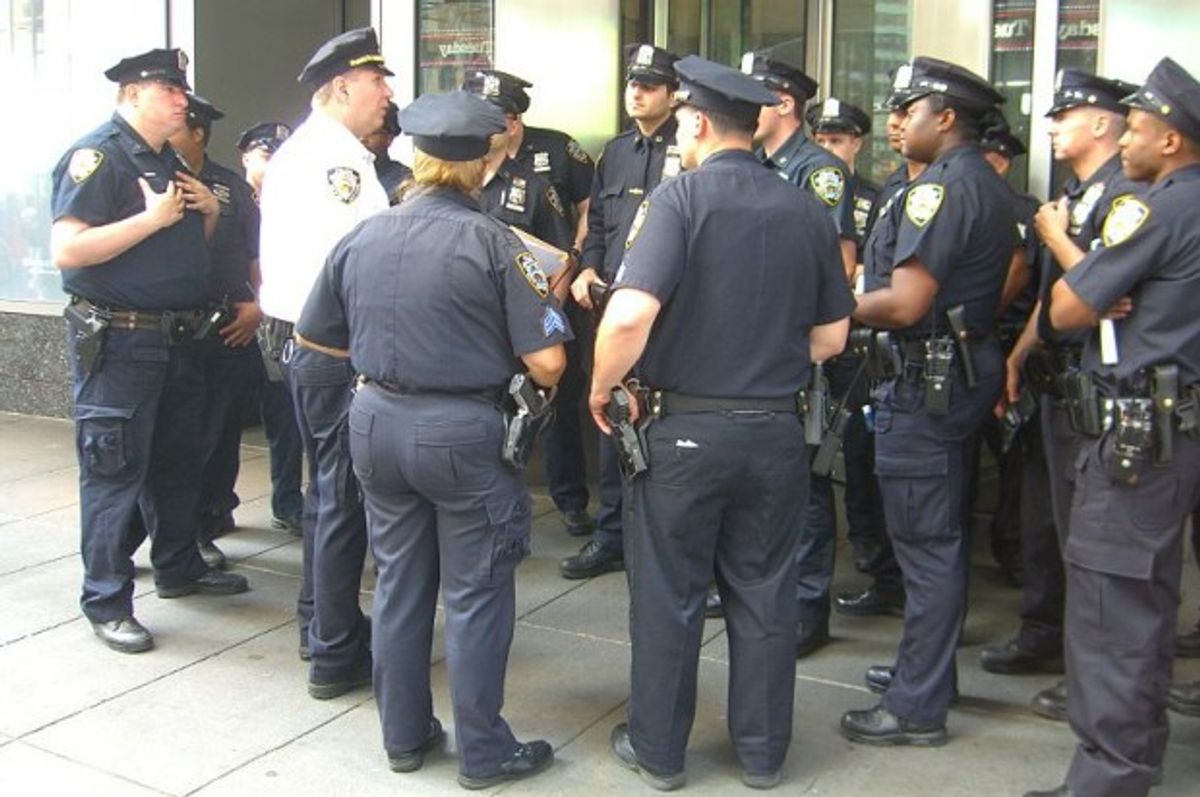A federal judge has allowed the NYPD to continue its stop-and-frisk program in Bronx "Clean Halls" apartment buildings, despite having ruled the trespass searches unconstitutional earlier this month.
U.S. District Judge Shira Scheindlin ruled Tuesday that suspicion-less stops in Bronx buildings in designated high crime areas can go on while the city appeals her decision. "The opinion acknowledges at the outset that many of the questions raised by stop-and-frisk are not easily answered and that it may be difficult to say where, precisely, to draw the line between constitutional and unconstitutional police encounters," read Sheindlin's decision.
Her ruling in early January had been celebrated by civil liberties groups like the NYCLU, who brought the suit against the police over searches carried out during sweeps of “Clean Halls” apartments. Operation Clean Halls, established in the 1991, gives police permission to stop and search individuals in and around New York apartment buildings in high crime areas. In 2011, according to the NYCLU , police stopped 1,137 of the 1,857 “Clean Halls” residents in the Bronx.
On Jan. 8, Scheindlin ruled that numerous searches in the Bronx buildings had violated the Fourth Amendment protection against unreasonable search and seizure. She ordered an immediate end to stop-and-frisks in instances when officers have no reasonable suspicion.
Scheindlin agreed to halt immediate enforcement of her earlier ruling to end the stop-and-frisks following a city request. As Bloomberg reported, "the city said that unless its request was granted, the NYPD would be required to take the immediate and burdensome step of having to retrain its police officers." The city persuaded the judge that it would be both expensive and burdensome to immediately enforce a ruling that could be undone in appeals court.
“Despite my reservations regarding the likelihood of defendants’ success on appeal, however, I recognize that reversal is always a possibility,” Scheindlin said Tuesday. The judge maintained that the police practice was unconstitutional but defended her reasoning for allowing it to temporarily continue:
Allowing a longstanding unconstitutional practice to persist for a few months while the parties present arguments regarding the appropriate scope of a remedy is quite distinct from allowing such a practice to persist until the completion of trial.
NYCLU attorneys remained content that Scheindlin's original ruling had not been undermined. Meanwhile, opponents of stop-and-frisk look forward to another upcoming trial in March, which challenges the police practice more broadly. As the AP reported, "That lawsuit, filed in 2008, challenges whether minorities are stopped at an unconstitutionally disproportionate rate, and whether there is a failure to monitor, supervise, and discipline officers who fail to meet the NYPD's stop-and-frisk reporting guidelines. The judge refused a request by the city to delay that trial."



Shares